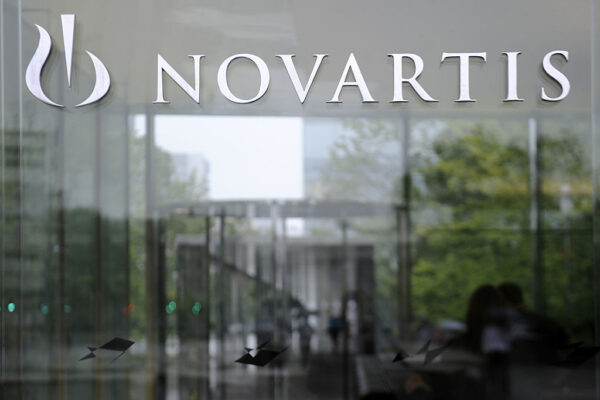
The kidney disease immunoglobulin A nephropathy, or IgAN, has few approved therapies, and Novartis is one of several companies developing alternative and potentially superior treatment options. Now the Swiss pharmaceutical company is spreading its bets with a $3.2 billion deal to acquire Chinook Therapeutics, a biotech with two late-stage programs for the rare disease.
Novartis has already reached Phase 3 development with a small molecule that stems from its own internal R&D, taking a different approach than both drug candidates from Seattle-based Chinook. At a time when merger and acquisition activity in the life sciences sector is facing greater scrutiny, the pharma giant will need to persuade antitrust regulators that the Chinook acquisition is not anti-competitive.

With the Rise of AI, What IP Disputes in Healthcare Are Likely to Emerge?
Munck Wilson Mandala Partner Greg Howison shared his perspective on some of the legal ramifications around AI, IP, connected devices and the data they generate, in response to emailed questions.
According to deal terms announced Monday, Novartis will pay $40 for each share of Seattle-based Chinook, representing a 67% premium to the biotech’s closing stock price last Friday and an 83% premium to stock’s average price over the past 60 days. Shares of Chinook haven’t traded close to that level since the company went public in a 2020 reverse merger. The deal also includes a contingent value right that could pay up to $4 more per share, potentially bringing Chinook shareholders another $300 million, payable upon the achievement of certain regulatory milestones.
“Through this merger, Novartis can apply its substantial resources to pursue broader development efforts and commercialization of atrasentan, zigakibart (BION-1301) and our other programs, which will significantly expand the Novartis renal pipeline and complement its existing programs,” Chinook CEO Eric Dobmeier wrote in an email sent to company employees soon after the deal was announced.
IgAN stems from an autoimmune reaction that leads to an abnormal form of the IgA protein. This protein buildup in the kidneys causes inflammation and organ damage, leading to a progressive loss of kidney function. Two drugs have FDA approval in IgAN. Tarpeyo, from Calliditas Therapeutics, treats the disorder by suppressing the immune system. Earlier this year, Travere Therapeutics won accelerated FDA approval for Filspari, a small molecule that blocks two pathways associated with IgAN progression.
Both of Chinook’s drug candidates came via deals. Atrasentan was in-licensed in 2019 from AbbVie, which had previously developed it as a potential treatment for diabetic kidney disease. The small molecule is designed to block the endothelin A receptor, which is a driver of kidney problems including inflammation and fibrosis. A data readout from Chinook’s Phase 3 test of the drug is expected in the fourth quarter of this year. The molecule is also in earlier stages of clinical development in other rare kidney diseases.
Chinook’s second IgAN drug candidate, zigakibart (previously known as BION-1301), came to the company as part of its 2020 reverse merger with Aduro Biotech. The subcutaneously injected drug is a monoclonal antibody designed to block a proliferation-inducing ligand (APRIL), a protein that drives some autoimmune diseases. Zigakibart is on track to begin a Phase 3 clinical trial in IgAN in the third quarter of this year.
Novartis’s iptacopan takes yet another approach to IgAN by blocking a complement system protein called factor B. The drug is furthest along in the rare blood disorder paroxysmal nocturnal hemoglobinuria. At the annual meeting of the American Society of Hematology last December, Novartis presented Phase 3 data showing the drug beat two AstraZeneca medicines for the disorder in a head-to-head clinical trial. At the time, the company said it planned to submit applications in the first half of 2023 seeking U.S. and European approvals in that indication. The company has said it expects the Phase 3 test of iptacopan in IgAN will yield preliminary data in the second half of this year.
In a research note sent to investors, William Blair analyst Matt Phipps said Chinook’s zigakibart could be the best of the IgAN drugs based on clinical trial results showing its ability to reduce urine and blood levels of biological indicators of the disease. Phipps acknowledged that the Chinook acquisition may raise questions in light of Novartis’s Phase 3 development of iptacopan for IgAN.
“However, given the different mechanisms of action, already approved drugs in the indication, and significant competition across the treatment landscape, we believe it is hard to argue Novartis is gaining a monopoly in the indication,” he wrote.
Other contenders in the mix as potential IgAN treatments include atacicept from Vera Therapeutics as well as felzartamab, an antibody that startup Human Immunology Biosciences licensed from MorphoSys.
The contingent value right included in the Chinook acquisition agreement is tied to the regulatory progress of atrasentan. The deal calls for a $2 per share payment upon FDA approval in IgAN by the end of 2025. But that payment comes with a condition tied to the drug’s safety. The approval must come without the requirement of a risk evaluation and mitigation strategy (REMS) for liver toxicity. REMS are plans that informs physicians and patients about a drug’s risks and they are placed on drugs that have safety concerns. Another $2 per share is payable upon FDA approval of atrasentan for focal segmental glomerulosclerosis (FSGS) by the end of 2029. This indication, another rare kidney disease, could be a tougher one. Last month, Travere reported that tests of its approved IgAN drug failed a pivotal study in FSGS.
The Novartis and Chinook boards of directors have approved the transaction, which still needs the affirmative vote of Chinook shareholders as well as regulatory approvals. The companies expect to close the deal in the second half of this year.
Photo: Adrian Moser/Bloomberg, via Getty Images














